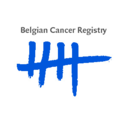In short
Cancer is still one of the major causes of death today. Complex analyses based on detailed investigation of the nature of the changes in the DNA of the tumor cells, the so-called Next-generation-Sequencing (NGS) technology, open new opportunities for treatment of metastatic cancers. To provide this new approach to all, at highest quality in an affordable manner, Belgium rolls out the introduction of NGS in routine diagnostics in (hemato) oncology in a controlled way. This new technology will be offered from May 2019 in all our hospitals. Sciensano’s Cancer centre prepared a Roadbook wherein all necessary actions have been described and coordinates all activities in the roll-out of integrating NGS analysis in routine clinical diagnostics.
Project description
Advanced molecular diagnostics in cancer aiming at improving diagnosis, prognosis and treatment require complex Next-Generation-Sequencing (NGS) analyses. To streamline the introduction of this new technology in our Healthcare system, a 5 year program was outlined in the “Roadbook: Personalized medicine: the introduction of next-generation sequencing in routine diagnostics in oncology and hemato-oncology (2016-2020)” which was prepared by Sciensano’s Cancer centre. The main actions in the Roadbook are:
- a Belgian Commission of Personalized Medicine was established in 2016, to advise on all technical aspects. The Cancer centre acts as president of this commission
- NGS guidelines for oncology were agreed on and taken up by the national accreditation body Belac
- a quality assurance system was set up by the our Quality of laboratories service and benchmark studies for solid, for hematologic tumors and for tumormarkers with a genetic impact are already conducted
- test algorithms for molecular diagnosis in major cancer types were agreed on with the professionals
- input of patients and citizens was gathered on the ‘informed consent’ for the use of registered cancer genomics data through focus group studies and a citizen forum in collaboration with the King Baudouin Foundation
- a centralised registration system was established within Sciensano’s Healthdata environment linked to the Belgian Cancer Registry for monitoring the NGS activities
- all NGS testing activities in oncology will be concentrated in 10 networks of laboratories and hospitals. NIHDI conventions with each of them are currently being established.
- novel nomenclature to allow for reimbursement of companion diagnostics for targeted therapies were prepared by NIHDI in collaboration with the Cancer centre, in addition to the concerted approval of CDx and targeted therapies in Belgium.
A pilot phase of 2 years, starts the beginning of May 2019 and will be coordinated and monitored by the Cancer center. The pilot study will allow to gather evidence about how structural integration of NGS-based technology in clinical routine practice is best organised in Belgium.
Sciensano's project investigator(s):
Service(s) working on this project
Partners







